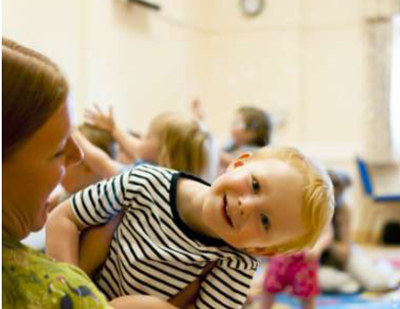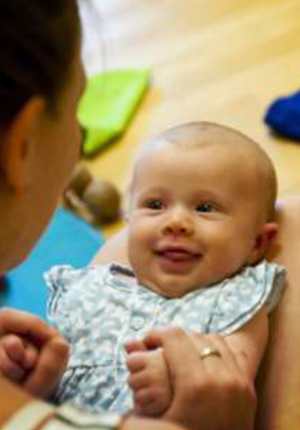Music & Lyrics
 How music and singing is intrinsically linked to language development By Michelle Keating, founder of Salt Box Music Company. We don’t really need an expert to tell us that babies respond to music. Whether it’s the soothing effect of a lullaby sung to our soon to be sleeping child or the fun of a rhythmic rocking nursery rhyme as we enjoy to row, row, row, our boats together. Our babies clearly love to hear our voices for both comfort and security, and the shared natural experience of creating eye contact when singing creates a reciprocal communication. Building on such communication is essential for learning and many child development experts believe that music is a key vehicle to early language development. Sally Goddard Blythe, a consultant in neuro-developmental education and director of the Institute for Neuro-Physiological Psychology believes
How music and singing is intrinsically linked to language development By Michelle Keating, founder of Salt Box Music Company. We don’t really need an expert to tell us that babies respond to music. Whether it’s the soothing effect of a lullaby sung to our soon to be sleeping child or the fun of a rhythmic rocking nursery rhyme as we enjoy to row, row, row, our boats together. Our babies clearly love to hear our voices for both comfort and security, and the shared natural experience of creating eye contact when singing creates a reciprocal communication. Building on such communication is essential for learning and many child development experts believe that music is a key vehicle to early language development. Sally Goddard Blythe, a consultant in neuro-developmental education and director of the Institute for Neuro-Physiological Psychology believes
that singing traditional lullabies and nursery rhymes to babies and infants before they learn to speak, is "an essential precursor to later educational success and emotional wellbeing". In her book “The Genius of Natural Childhood” she goes on to say that “song is a special type of speech. Lullabies, songs and rhymes of every culture carry the 'signature' melodies and inflections of a mother tongue, preparing a child's ear, voice and brain for language." From birth our baby’s first communication is to howl or squeal as they communicate to us that they need something from us, and we respond with a comforting speech dialogue. As our baby grows so does their repertoire of sounds as they enjoy making airy cooing sounds which we often can’t help but respond to with “parentese”. Parentese is the rhythmic way in which we have a conversation with our little bundle, often changing our voice tone and pitch which many parents are unaware of using! The make-up and essence of parentese is of course musical.  We enjoy singing with our children because quite simply it is fun! Those lovely musical coos develop into combinations of sounds that represent real objects (for example my son’s word for tractor was “dab-ba”!), before speech develops into that very first word, all with the help of our rhythmic conversations together! Language and music both involve rhythm to their structure and music is a language in its own right. Both of these languages (speech & music) are made up of smaller parts such as syllables & beats and this correlation means that arguably, music is an obvious natural way to actively encourage our child’s speech. Through my work I have experienced how music and singing can improve a child’s language skills, whether they are very young and still developing their speech, have a speech delay, or are learning English as a second language, and it is incredible to hear a child sing a word or even sentence for the first time. Finally, aside from all of the science, across all cultures we enjoy singing with our children because quite simply it is fun!
We enjoy singing with our children because quite simply it is fun! Those lovely musical coos develop into combinations of sounds that represent real objects (for example my son’s word for tractor was “dab-ba”!), before speech develops into that very first word, all with the help of our rhythmic conversations together! Language and music both involve rhythm to their structure and music is a language in its own right. Both of these languages (speech & music) are made up of smaller parts such as syllables & beats and this correlation means that arguably, music is an obvious natural way to actively encourage our child’s speech. Through my work I have experienced how music and singing can improve a child’s language skills, whether they are very young and still developing their speech, have a speech delay, or are learning English as a second language, and it is incredible to hear a child sing a word or even sentence for the first time. Finally, aside from all of the science, across all cultures we enjoy singing with our children because quite simply it is fun!
Michelle Keating has a BA (Hons) degree in Music & Child Psychology and is the Founder of Salt Box Music Company. They run small hands-on music classes for 0 – 4 year olds across Oxfordshire, led by inspiring teachers with their big bags of world percussion, puppets and props! Find out more at www.saltboxmusic.co.uk.